Idris Elba on his new sitcom: 'It puts a lens on racism and what it was like in the Eighties'
'The Wire' and 'Luther' star has created a sitcom about growing up in 1980s Britain. But how did TV of the time reflect the black British experience?

Your support helps us to tell the story
From reproductive rights to climate change to Big Tech, The Independent is on the ground when the story is developing. Whether it's investigating the financials of Elon Musk's pro-Trump PAC or producing our latest documentary, 'The A Word', which shines a light on the American women fighting for reproductive rights, we know how important it is to parse out the facts from the messaging.
At such a critical moment in US history, we need reporters on the ground. Your donation allows us to keep sending journalists to speak to both sides of the story.
The Independent is trusted by Americans across the entire political spectrum. And unlike many other quality news outlets, we choose not to lock Americans out of our reporting and analysis with paywalls. We believe quality journalism should be available to everyone, paid for by those who can afford it.
Your support makes all the difference.Watching television as he grew up in the East End of London in the 1970s and 1980s, Idris Elba – the future star of The Wire, Luther and countless Hollywood movies – would have been hard-pressed to find representations of families like his own. That’s to say black British.
Idrissa, as he was baptised (he shortened it to Idris while at school), was the only child of a father from Sierra Leone and a mother from Ghana, living on the racially diverse Holly Street Estate in Hackney. Such families were all but invisible in the television comedy and drama of the day.
Born in 1972, Elba would have been (luckily for him, perhaps) too young to catch ITV’s hugely popular sitcom Love Thy Neighbour, which looked at the tensions that arose when a Tory-voting West Indian couple moved in next door to a white working-class socialists – the studio audience beside themselves as the characters casually traded unprintable racial epithets that would today probably constitute a hate crime. There’s a shocking two-minute compilation available on YouTube that gives a pretty good taste of the material – and also of race relations of the period.
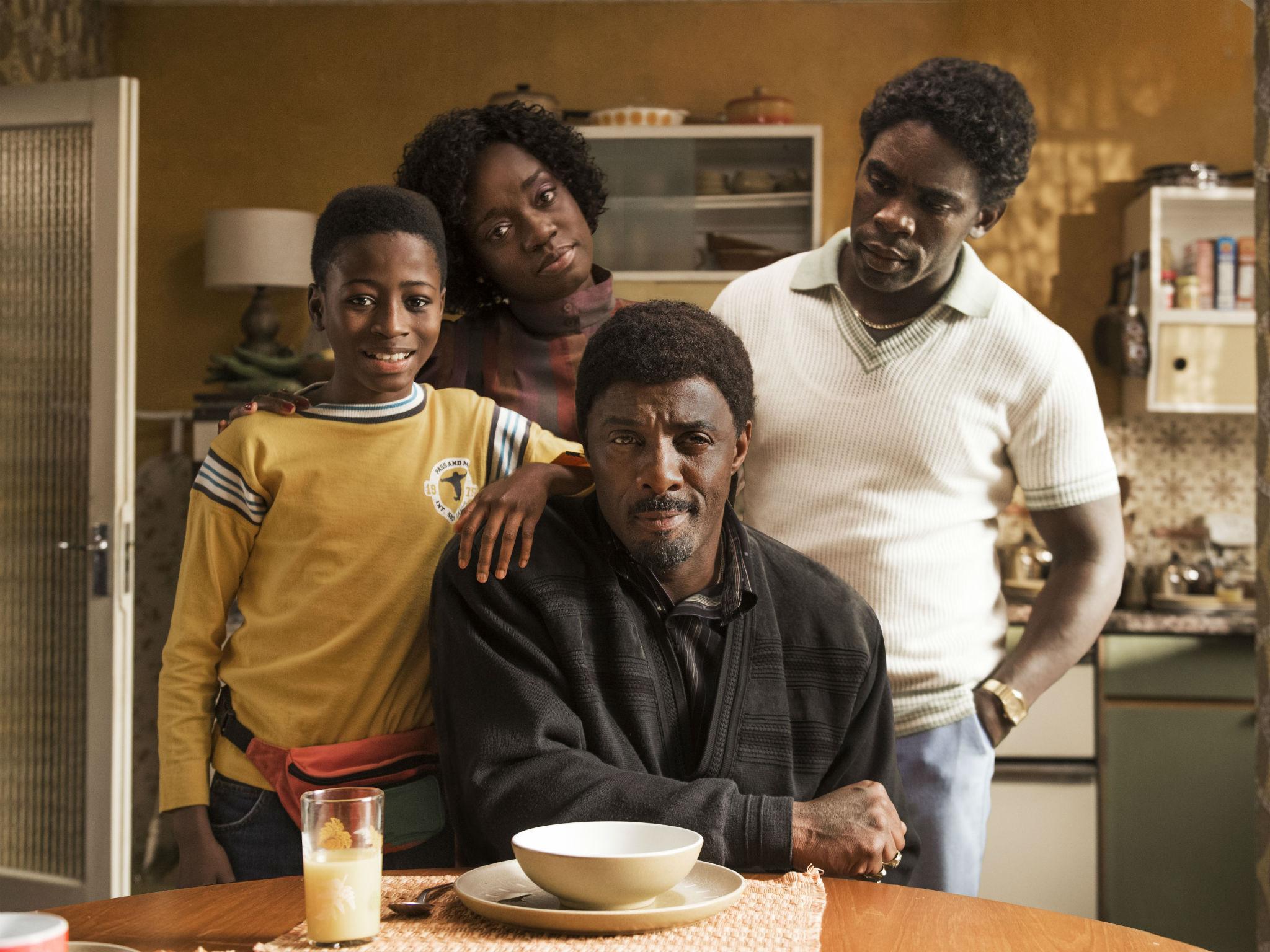
Elba would also have been too young to enjoy ITV’s The Fosters, the first all-black British sitcom and best remembered now as the first screen role for a young Lenny Henry. Featuring a West Indian couple and their three British-born children, The Fosters was almost totally reliant on slightly modified scripts from an American comedy series, Good Times, and therefore might easily have been set in Philadelphia or Baltimore rather than London. It had nothing specific to say to the black British experience.
And then there was Mixed Blessings from ITV (again), about a mixed-race couple and how their respective families reacted to their impending marriage (not well, as you can intuit from the title). Or there was No Problem!, in which a family of black teenagers and young adults were left to fend for themselves in a west London council estate after their parents returned to Jamaica.
Even with the relatively greater sophistication of No Problem!, the young Idris may have struggled to identify with the characters involved since TV shows weren’t yet discerning the cultural differences between families with Caribbean roots and those which had come from Africa.
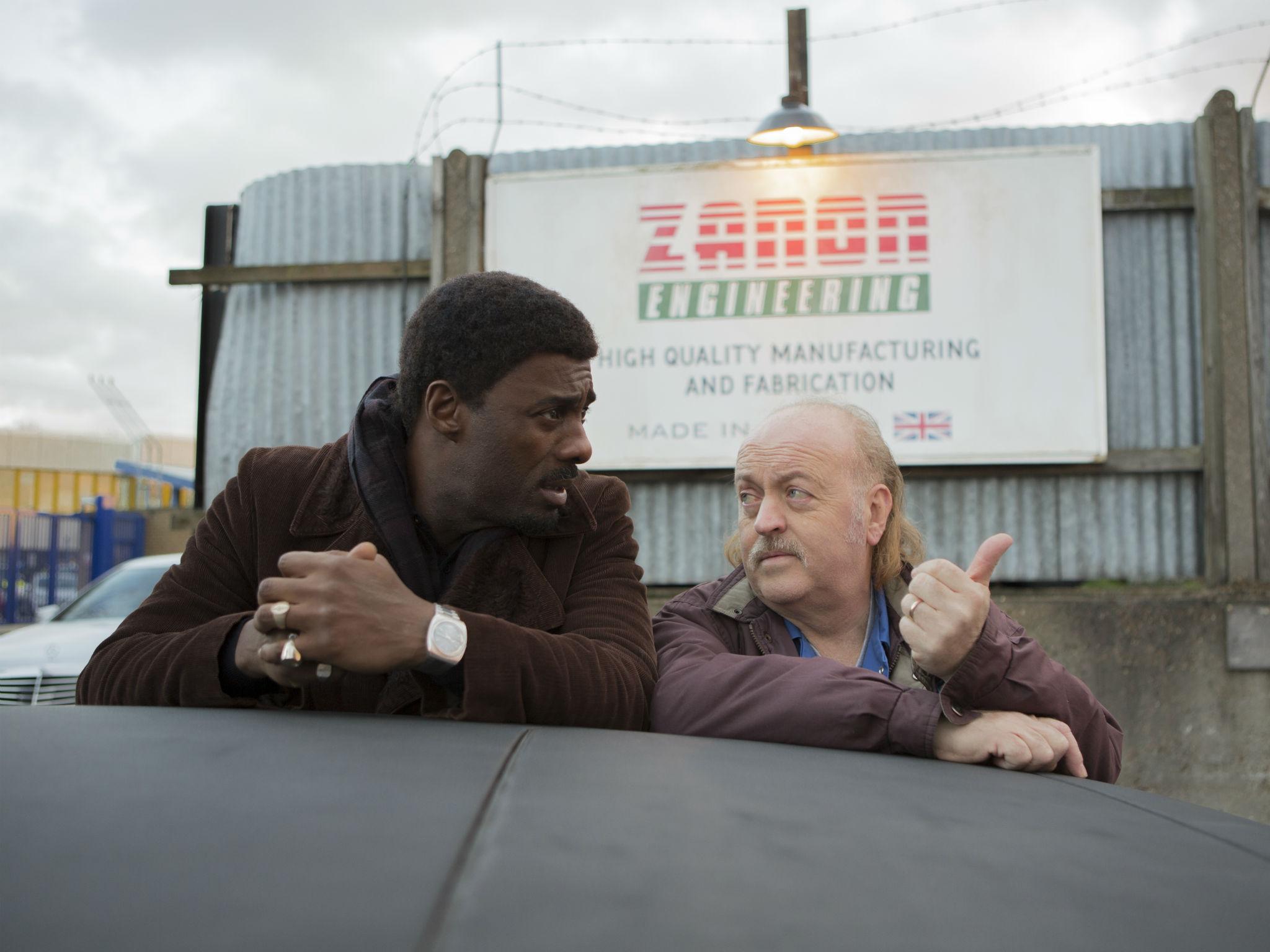
So it’s perhaps with a sense of retroactive rebalancing that Elba has now created a semi-autobiographical sitcom set in the era of his own coming-of-age. A spinoff from a 20-minute short that he made for Sky called King for a Term, In the Long Run is situated on a London council estate in 1985. Elba and Madeline Appiah play Walter and Agnes, a couple who came to Britain from Sierra Leone 13 years previously, while Sammy Kamara plays their British-born son Kobna, who is the same age as Elba was in 1985.
“It’s a bit of a mish-mash, to be honest,” says Elba in reply to the question of whether or not the show is based on his own childhood. “It really is just a good look at the Eighties, which was when I was turning from boy to teenager. It’s looking at what London was like then, especially east London, where I came from.
“Kobna is meant to me as a kid. And it’s really weird sometimes looking up, seeing parts of my life being displayed. Remember, though, that this isn’t exactly a carbon copy of my life: this is its own thing.”
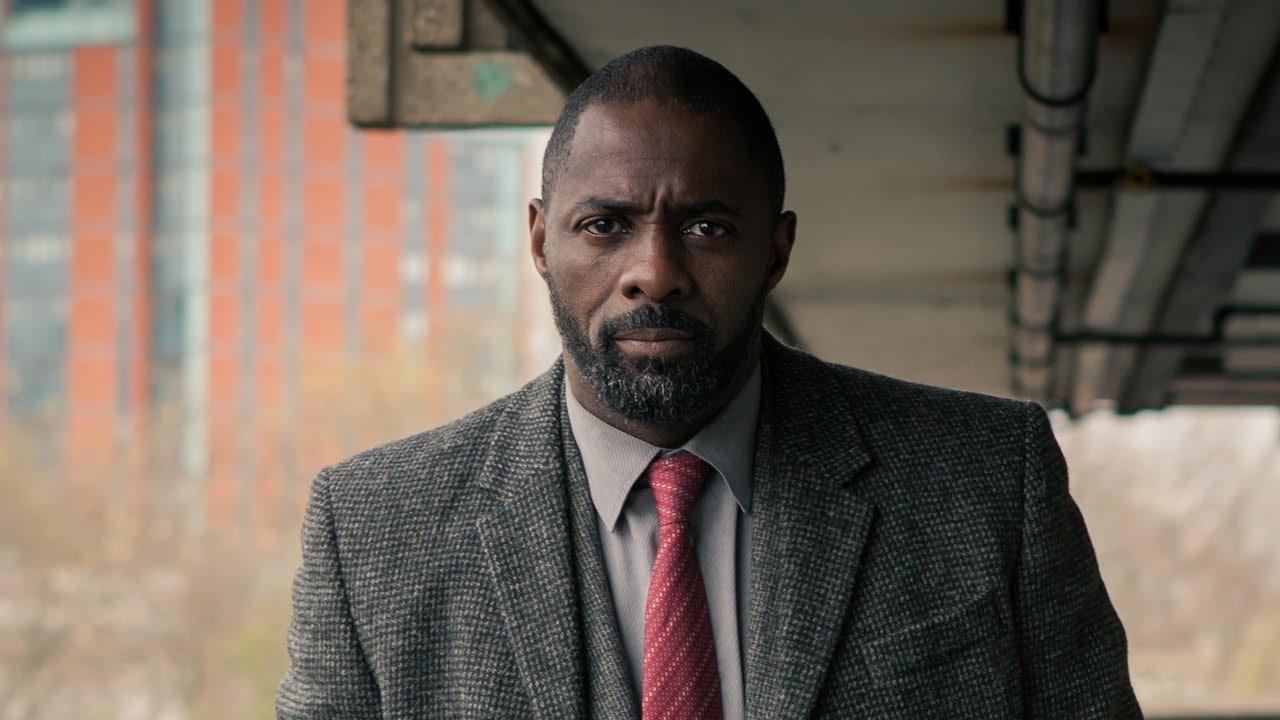
And by calling his character Walter, a similar name to his dad, Winston, and by having this Walter work in a car-parts factory (Winston worked at the Ford plant in Dagenham), Elba would seem to be playing his own father. Did that feel strange?
“It’s been all right, but it’s a bit sad,” he says. “My old man passed a few years ago, so it’s bittersweet in places. But this character’s taken on a life of its own, you know. I’m not really doing an impression of my old man.”
While not entirely shying away from the overt racism of the time, In the Long Run is a warm, soft-edged recreation of a period that Elba has recalled as anything but – especially when his parents moved from multicultural Hackney to white working-class Canning Town. He has spoken of the abuse (and the eggs) thrown at him by National Front supporters making their way to watch West Ham United play football, for example. And of being bullied at school.
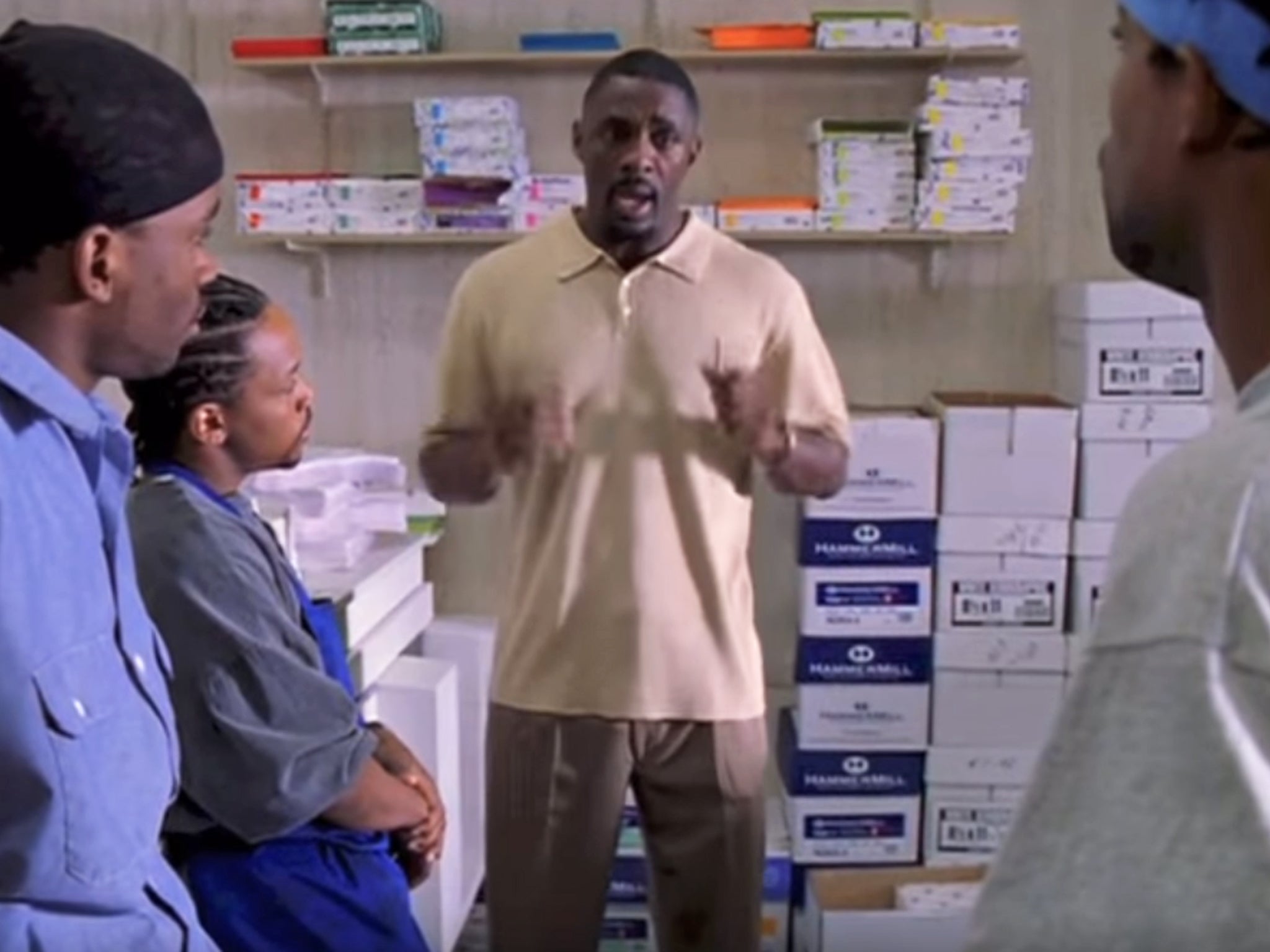
“It does look at Walter’s younger son Kobna being bullied,” says Elba of his new show. “And it puts a lens on racism and what it was like in the Eighties. But in truth, it was a lot more in-your-face than how we show it, if anything. We don’t ignore it, but we don’t make it the focus. We wanted to show what bound people together, not what divided them.”
Bill Bailey co-stars as Winston’s upstairs neighbour and work colleague, a character with the unusual name of Bagpipes, but the dynamo of the show is Winston’s irresponsible younger brother, Valentine (played by Jimmy Akingbola), who has been sent over from Africa by Winston’s mother in the hope that Winston can sort him out. Instead, Valentine resists all attempts at steady employment, becoming a DJ at the local pub instead.
To some extent, the character is based on Elba’s own uncle, with whom, at the age of 14, he helped DJ calypso at weddings before the pair of them started their own rare-groove sound-system Social Affairs. The gigs were to kick-start of a parallel career for Elba that continued with a Saturday drive-time show on pirate radio station Climax FM (under the moniker of Mr Kipling) and has carried on to this day by way of rather more glamorous sets at Glastonbury and performing with Jay-Z.
Akingbola himself says he can’t DJ to save his life, but he does put his finger on one way in which In the Long Run is groundbreaking in its depiction of the black British experience.
“I think growing up around these times, there was always a big influence from the Caribbean side of things, and Windrush and whatnot,” he says. “Whereas I think the African side of things has always been a bit missed out. And I feel like now the show has the potential to give a window to the African experience, and that culture.
“But also what I love about this show is it doesn’t matter where you’re from: if your family’s from Turkey, Poland, Italy or wherever and you came to London in those times, you will really engage with it.”
The Best and Worst of Black British sitcoms
The Fosters (1976)
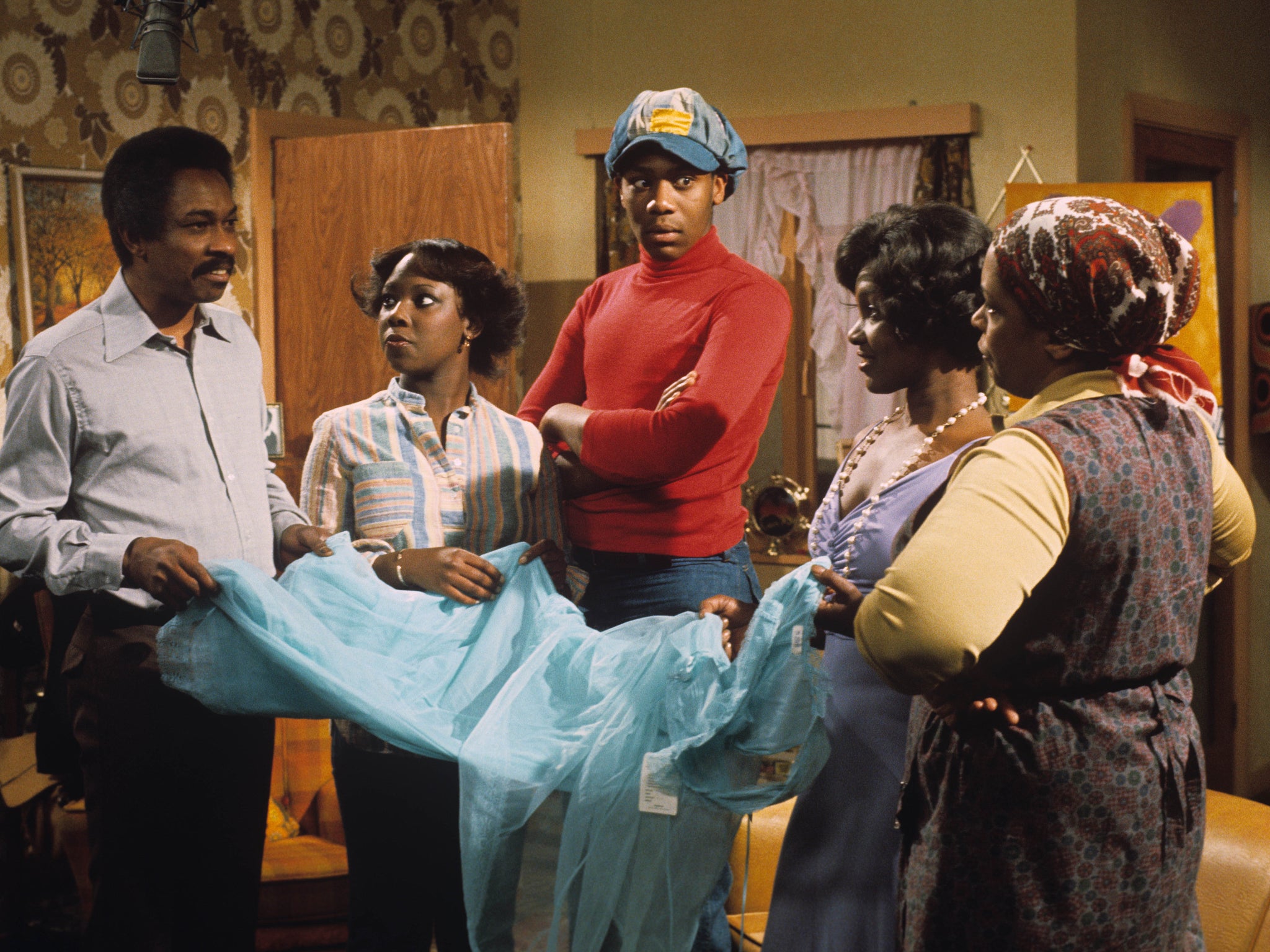
There was an early starring role for Lenny Henry in Britain’s first all-black sitcom, about a Caribbean couple living with their three British-born children on a south London housing estate. The potential realism of the situation was undercut by the scripts coming from a similar comedy in America and it proved short-lived.
Mixed Blessings (1978)
ITV’s shockingly crass but hugely popular early 1970s sitcom Love Thy Neighbour, in which a West Indian family moved in next door to a white couple, was followed in 1978 by the superficially more progressive Mixed Blessing about a white man and his black fiancée and the effect if their engagement on their respective families. The relationship was of course presented as a problem.
No Problem! (1983)
ITV again, this time featuring the teenage and young-adult Powell siblings, left to fend for themselves in a London council house after their parents return to Jamaica. Drawing its cast and writers from the Black Theatre Cooperative, the show was nevertheless criticised by one contemporary cultural critic for putting “voluntary repatriation at the heart of the situation”.
Desmond’s (1989)
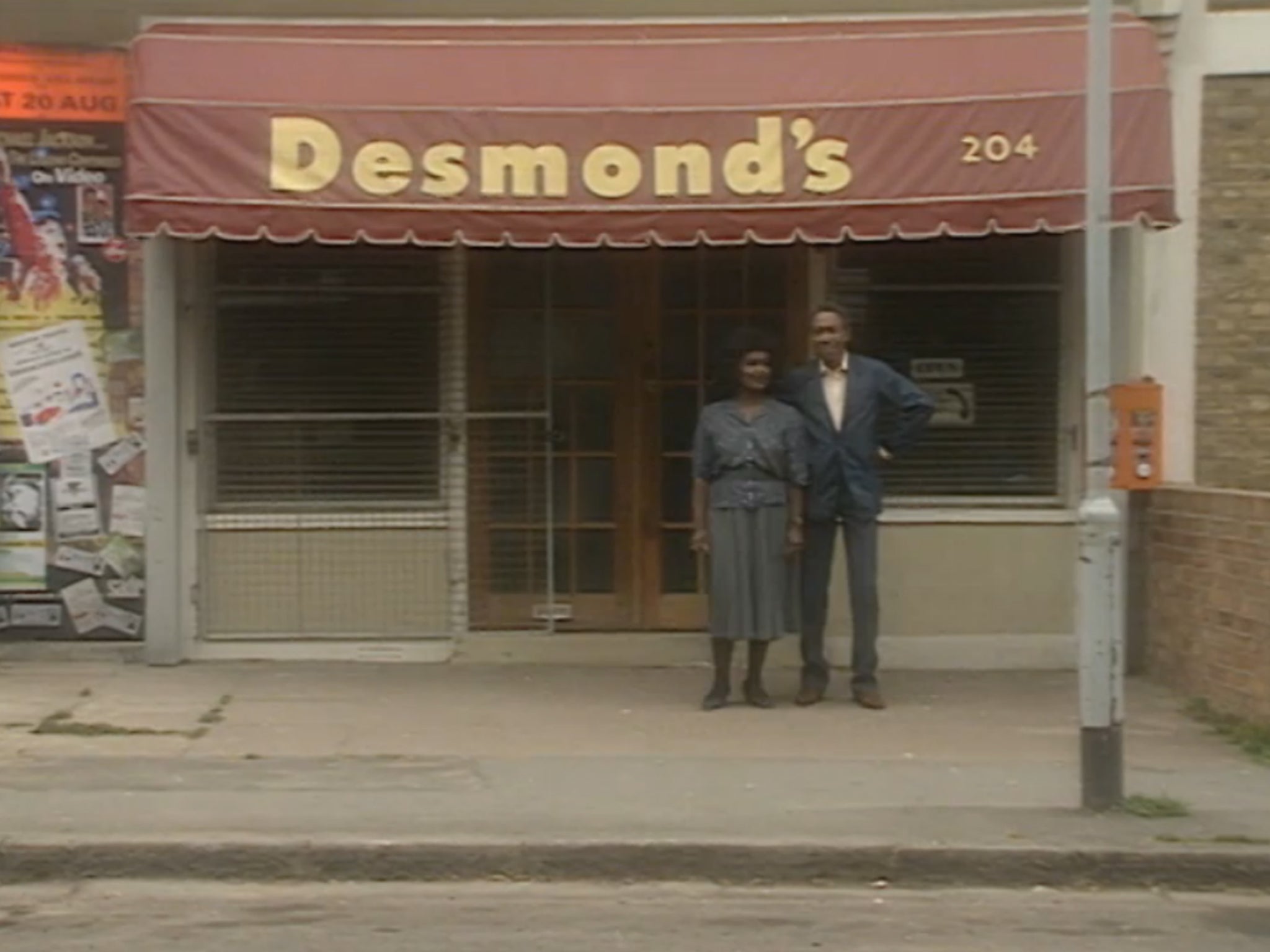
Widely regarded as the breakthrough where the representation of black Britons is concerned, Channel 4’s longest-running sitcom starred Norman Beaton as Desmond Ambrose, the owner of a Peckham barbershop. Much of the comedy stemmed from intergenerational misunderstanding plus a rich cast of characters, including Porkpie (Ram John Holder), who spun off into his own eponymous sitcom.
Chewing Gum (2015)
Set once again on a London council estate but light years away from the above shows in tone and subject matter, Michaela Coel’s raucous Bafta-winning comedy follows the misadventures of naïve, Beyoncé-loving Tracey, desperate to belatedly lose her virginity, and her deeply religious mother and sister.
Sunny D (2016)
The talented Dane Baptiste played “Dane” – fast approaching 30 and still living with his mum and dad. Fast, fresh and likeable, with Rising Damp legend Don Warrington playing Dane’s dad, it’s a shame that BBC3 seems to have turned their back on the show after just one series.
‘In the Long Run’ begins on Sky1 on 29 March
Join our commenting forum
Join thought-provoking conversations, follow other Independent readers and see their replies
Comments